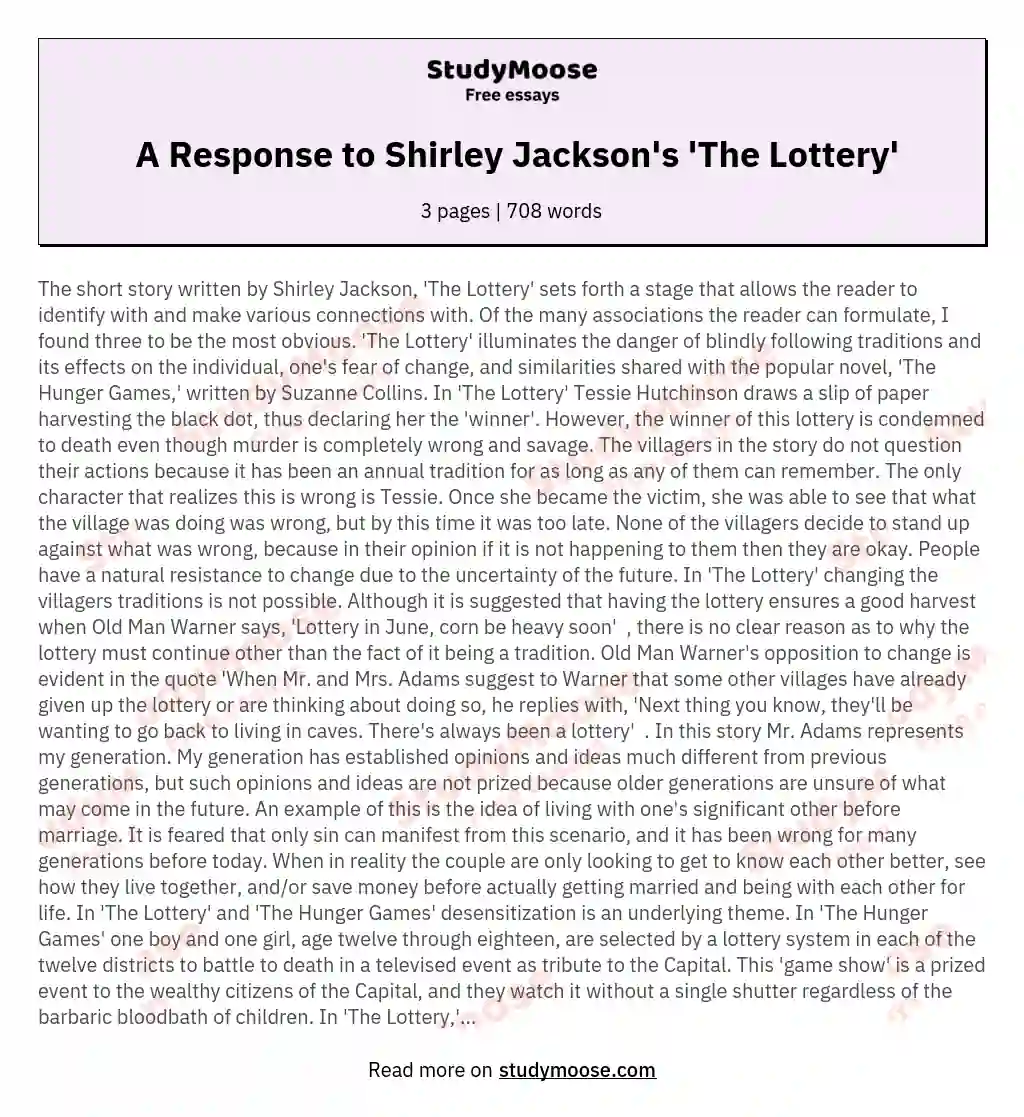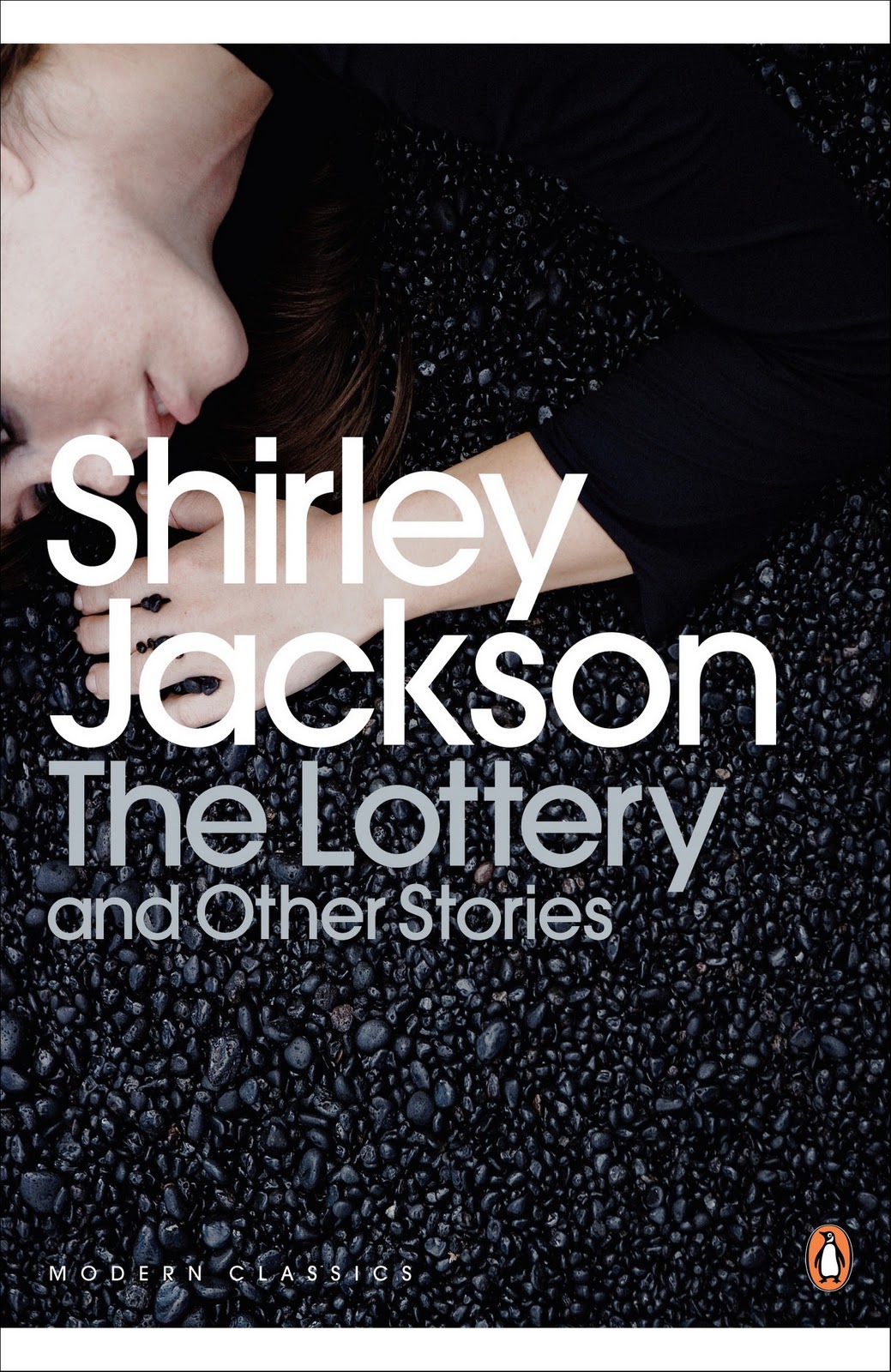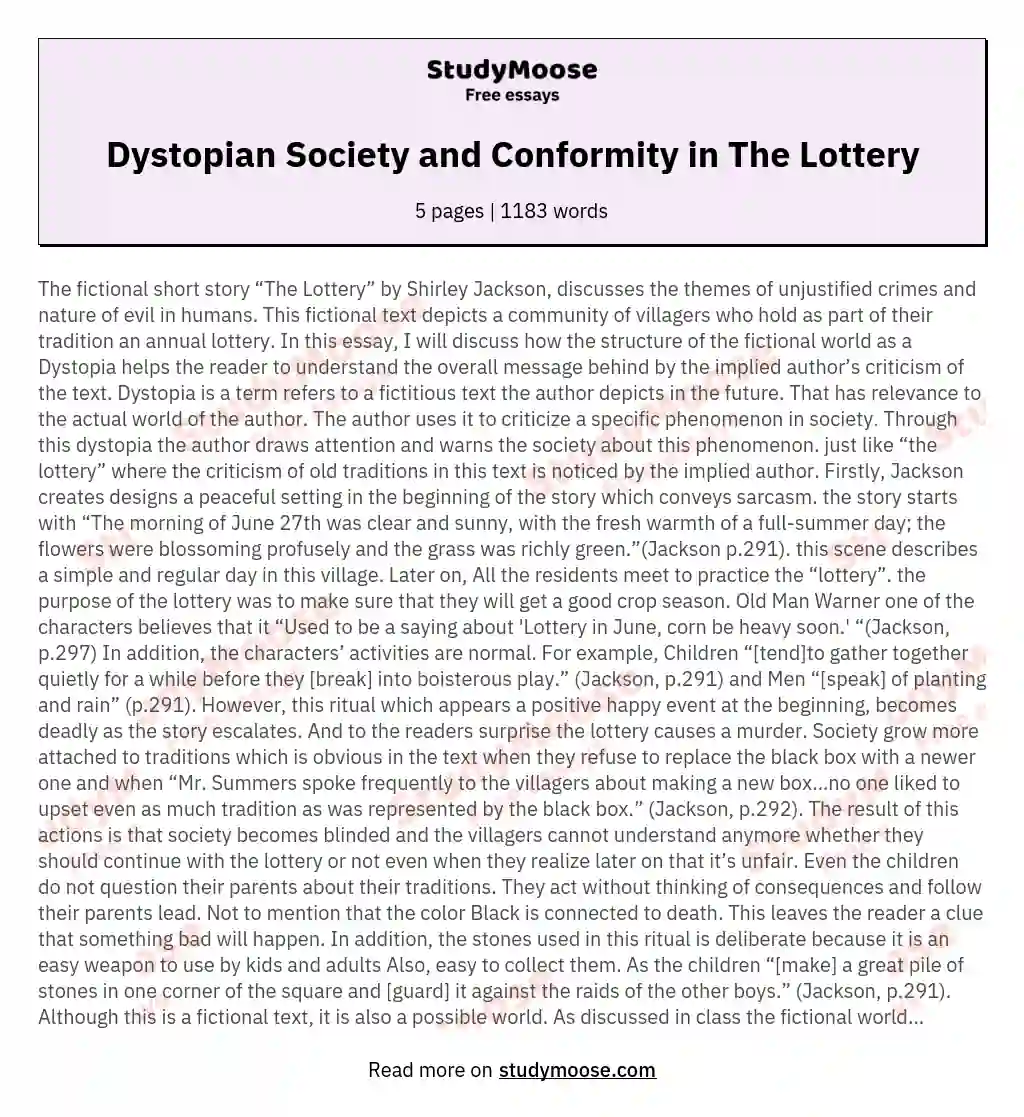The Lottery by Shirley Jackson is a short story that explores the dangers of blindly following tradition. Set in a small town in the United States, the story centers around an annual event known as the lottery, in which a member of the community is selected to be sacrificed. The lottery is presented as a normal and integral part of the town's culture, with the villagers participating without question or hesitation.
Despite its disturbing nature, the lottery is depicted as a seemingly harmless and even enjoyable activity. The villagers gather together on a sunny summer morning and engage in friendly conversation as they wait for the lottery to begin. Children run around and play games, adding to the festive atmosphere. It is only when the details of the lottery are revealed that the true horror of the tradition becomes apparent.
As the story progresses, it becomes clear that the lottery is a barbaric and violent ritual that serves no purpose other than to appease some unknown, primal urge. The fact that the villagers go through with it year after year, without questioning or attempting to change it, is a testament to the power of tradition and the dangers of blindly following it.
One of the main themes of The Lottery is the idea that tradition can be harmful, especially when it is not examined or questioned. The villagers in the story are so entrenched in the tradition of the lottery that they are unable to see its true nature. They participate without hesitation, even when it becomes clear that the tradition is causing harm to their own community. This willingness to blindly follow tradition is ultimately what leads to the tragic and unnecessary death of the lottery's victim.
The story also touches on the theme of the destructive power of mob mentality. As the villagers participate in the lottery, they become caught up in the excitement and adrenaline of the moment. They become a mob, driven by a shared sense of purpose and a desire to satisfy their own primal urges. This mob mentality ultimately leads to the brutal and senseless murder of one of their own.
In conclusion, The Lottery by Shirley Jackson is a cautionary tale about the dangers of blindly following tradition. It serves as a reminder to question and examine the traditions that we participate in, rather than blindly following them without thought or examination. By doing so, we can prevent harm to ourselves and those around us and ensure that our actions are in line with our values and beliefs.
"The Lottery" by Shirley Jackson is a short story that explores the dangers of blindly following tradition. Set in a small town in the United States, the story follows the annual tradition of the lottery, in which one member of the community is selected to be stoned to death by their neighbors.
At first glance, the lottery seems like a harmless and even festive event. The townspeople gather in the town square, children play games, and the atmosphere is one of excitement and anticipation. However, as the story unfolds, it becomes clear that the lottery is not a celebration, but a deeply disturbing and violent tradition that is blindly accepted and participated in by the townspeople.
One of the most disturbing aspects of the lottery is the lack of questioning or resistance to it by the townspeople. Despite the fact that the lottery results in the death of one of their own, the townspeople continue to participate in it year after year without questioning its purpose or justification. This is a clear example of the dangers of blindly following tradition, as the townspeople have become so accustomed to the lottery that they no longer consider the moral implications of their actions.
Another disturbing aspect of the lottery is the casual and matter-of-fact way in which it is carried out. The townspeople draw names from a box and casually discuss the potential consequences of being chosen, as if it were a game or an inconvenience rather than a matter of life and death. This casual attitude towards violence and death is a disturbing commentary on the power of tradition to desensitize individuals and numb them to the suffering of others.
Overall, "The Lottery" is a powerful and thought-provoking story that serves as a cautionary tale about the dangers of blindly following tradition. It highlights the importance of questioning and challenging the traditions and practices that we take for granted, and encourages us to think critically about the moral implications of our actions. So, we should always think before following any tradition blindly.







